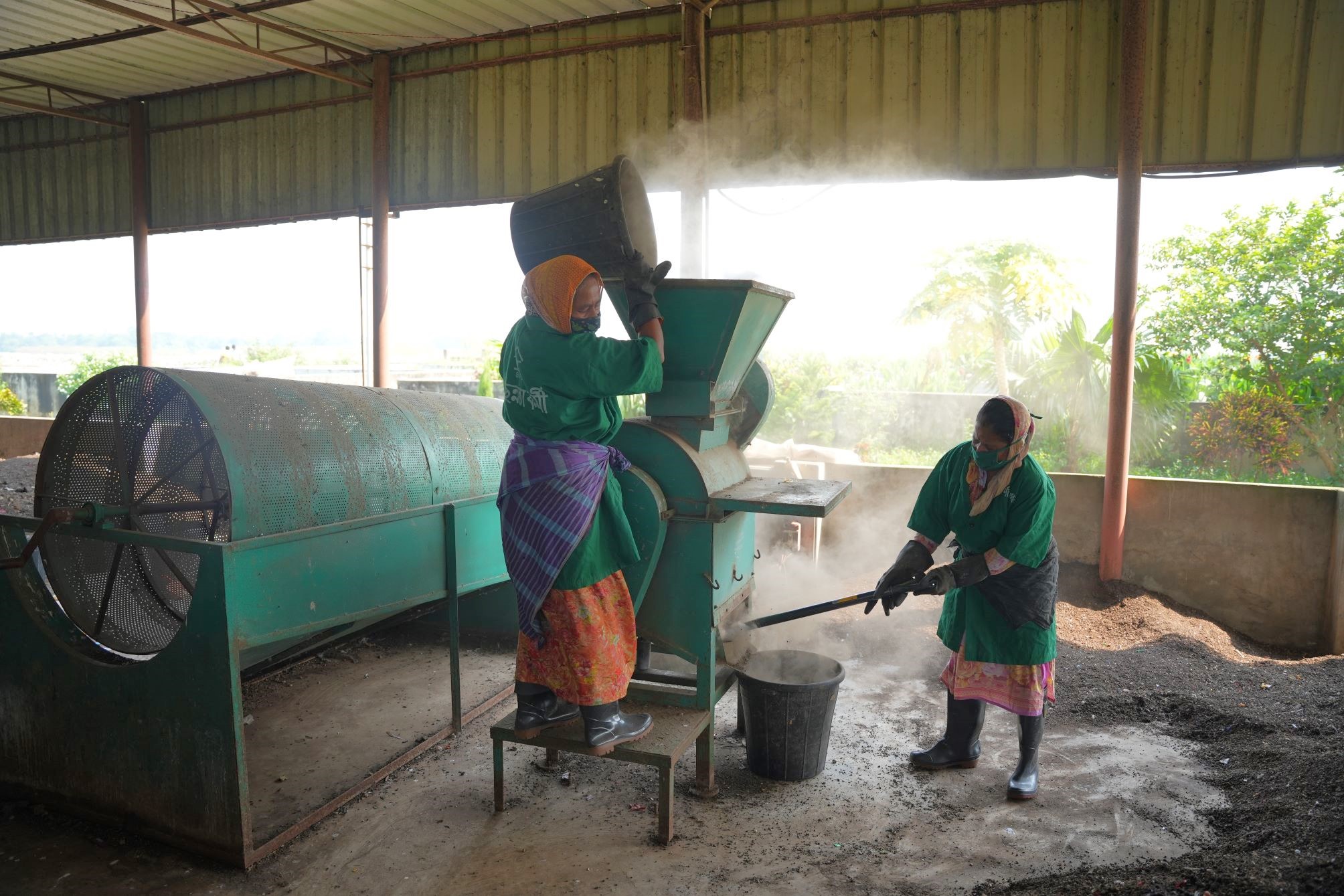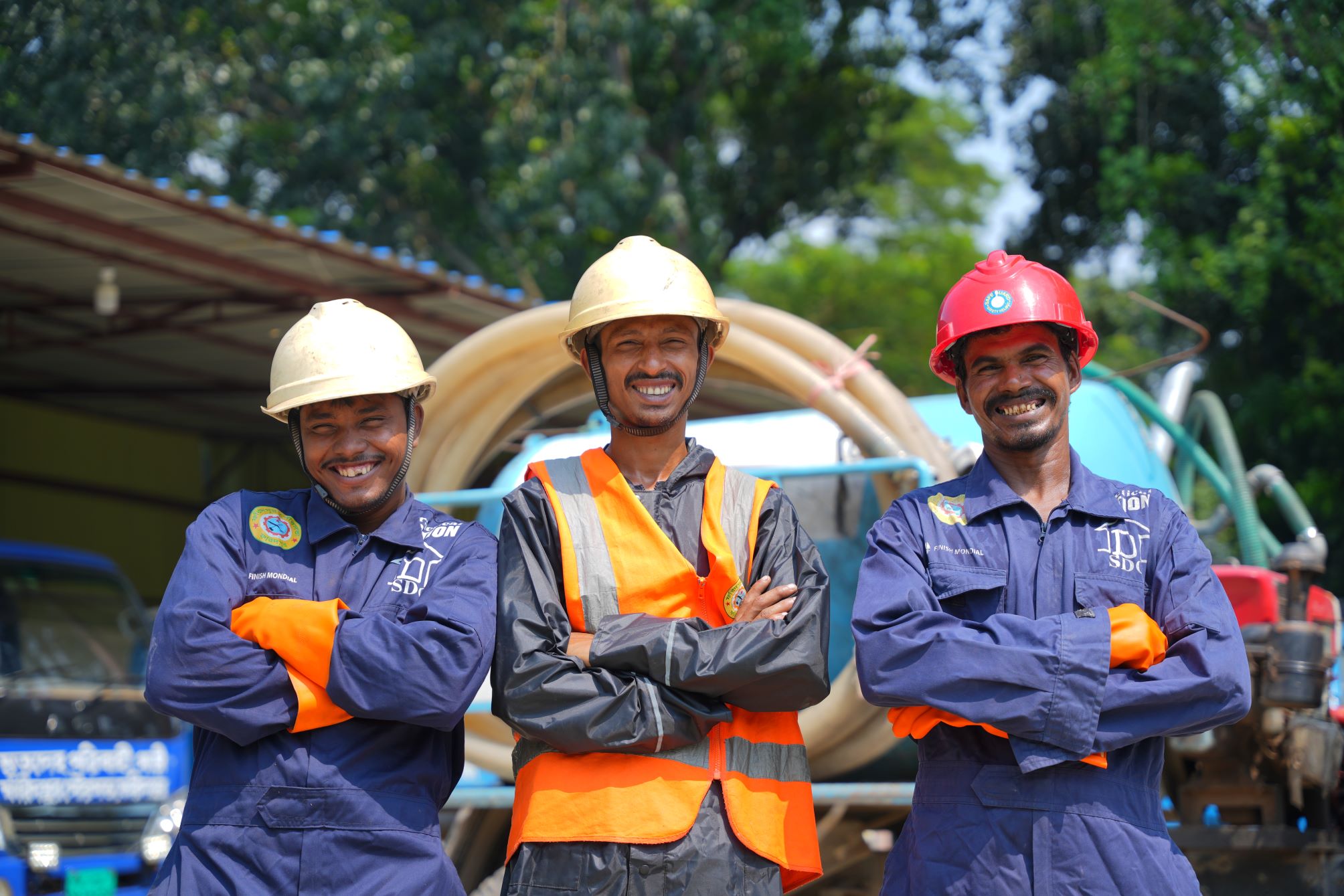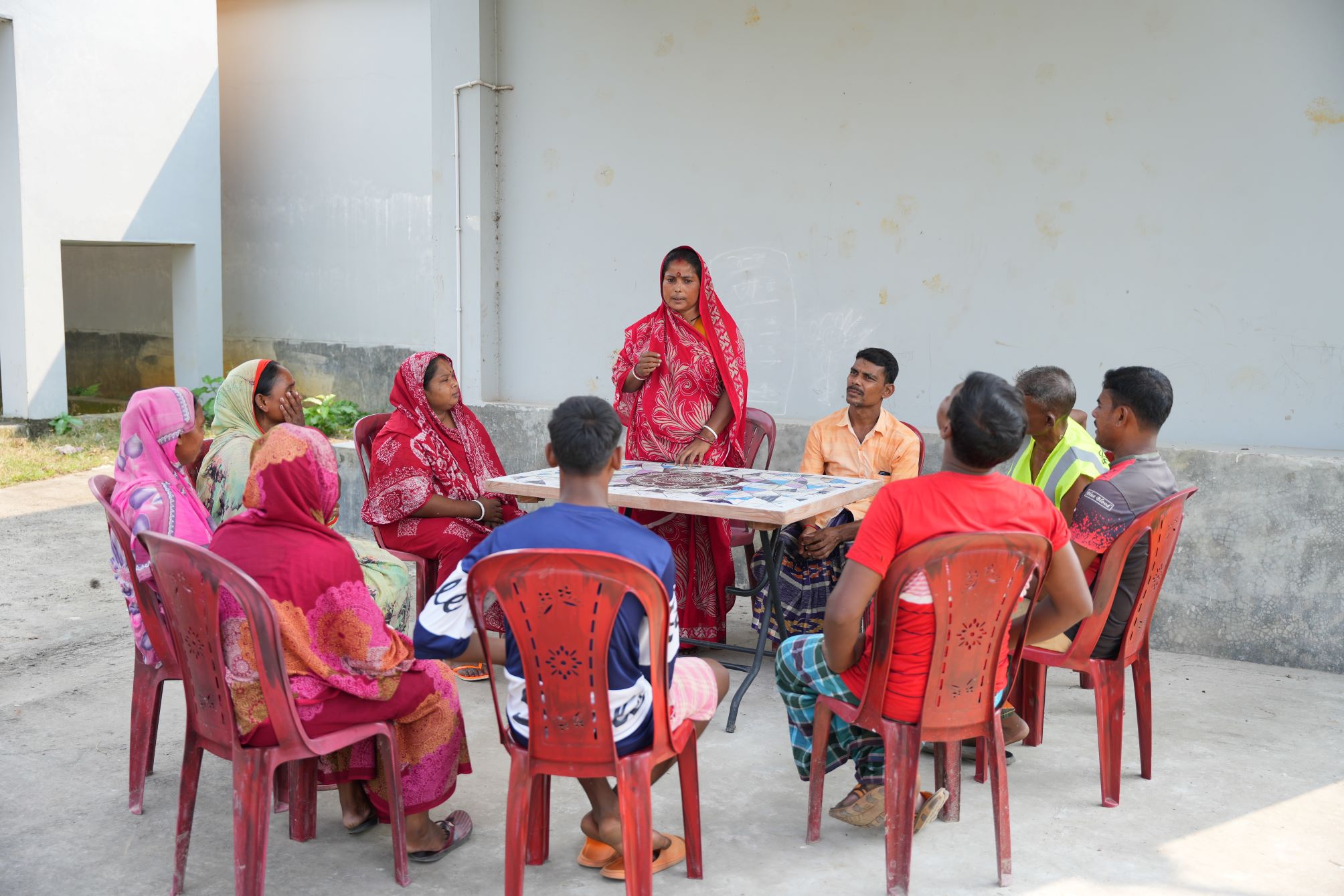Nasima Begum, a sanitation worker, delivered the keynote paper at the 6th FSM Convention held on March 3rd at the Institute of Architects Bangladesh (IAB) in Dhaka. The Faecal Sludge Management (FSM) convention brought together government officials, NGO leaders and sanitation workers to address the safety and dignity of sanitation workers, sanitation financing, and progress in implementing the City-Wide Inclusive Sanitation (CWIS) Model in Bangladesh.
Faecal Sludge Management (FSM) is a critical challenge in Bangladesh, Nepal, and India. Proper management is crucial for achieving SDG 6.2 by 2030, which aims to ensure access to adequate sanitation and hygiene for all. To meet this target, NGOs in the WASH sector, alongside government efforts, have taken action. In 2016, they established the Bangladesh FSM Network, which has since been organising conventions to address the issue.
The 6th FSM Convention aimed to address critical issues such as the safety and dignity of sanitation workers, sanitation financing, and progress in implementing the City-Wide Inclusive Sanitation (CWIS) Model to achieve SDG target 6.2. Through discussions and sessions focused on achievements, best practices, and challenges, the convention sought to foster dialogue and drive impactful change in Bangladesh’s FSM sector, emphasising the importance of collective action in achieving sustainable sanitation goals.
Nasima’s presentation on the lives and livelihoods of sanitation workers marked a historic moment, captivating the audience of high-level government officials, journalists, NGO leaders, stakeholders, and fellow sanitation workers. She highlighted the challenges faced by workers and advocated for meaningful change.

“As a sanitation worker, the FSM Network has been an invaluable platform for amplifying our voices. Each convention has empowered us, and now, we look to the FSM Network to help us establish a National Level committee. With representatives from every corner, we can unite and strengthen our cause together.”
Nasima Begum, sanitation worker and female sanitation workers’ cooperative leader in Faridpur
The 6th FSM convention was made possible through the collaboration of 16 member organisations: Practical Action in Bangladesh, WaterAid Bangladesh, SNV, ITN-BUET, Water & Sanitation for the Urban Poor (WSUP), Athena Infonomics, BASA foundation, BRAC, FINISH Mondial, MAWTS Institute of Technology, NGO Forum for Public Health, Oxfam in Bangladesh, Society Development Committee – SDC, SKS Foundation, Village Education Resource Center (VERC) and World Vision Bangladesh. Together, they worked tirelessly toward a common goal: improving sanitation workers’ safety and dignity and advancing FSM practices in Bangladesh. Practical Action, the secretariat of the FSM Network, led this convention.
The network has also facilitated participation in international FSM conferences from its fourth to its seventh edition. Since its start in 2016, it has expanded from 5 to 17 member organisations, working in two thematic groups dedicated to advancing FSM as a vital solution for improving sanitation policies and practices. In 2020, during the challenges posed by COVID-19, it advocated for the vaccination of sanitation workers, recognising their frontline heroism. Furthermore, its involvement in the South-by-South Collaboration has facilitated connections with communities in India and Nepal, fostering hopes for an expanded network across borders and strengthening alliances in South Asia.



The convention’s chief guest was Mr Md. Sarwar Hossain, the Chief Engineer of the Department of Public Health and Engineering. Additionally, esteemed representatives from the Ministry of Local Government, Rural Development, and Cooperatives (MoLGRD&C), the Ministry of Labour and Employment (MoLE), the Bangladesh Bank, the Department of Public Health Engineering (DPHE), and the Mayor of Shibganj Municipality were special guests.
Ms. Hasin Jahan, Country Director of WaterAid and founding member of the FSM Network, delivered the opening speech. Subsequently, Mr. Uttam Kumar Saha, Strategic Lead for Urban & Energy at Practical Action, presented on behalf of the Network.
Representatives from City-Wide Inclusive Sanitation Alliance Nepal (CWISAN), Environment & Public Health Organization (ENPHO) from Nepal, DASRA, Secretariat of The National Faecal Sludge and Septage Management (NFSSM) Alliance, and UMC (Urban Management Centre) from India provided insights into regional FSM practices highlighting initiatives for sanitation workers.
The convention featured two parallel sessions: Exploring Innovative Approaches to Sanitation Financing and CWIS Model Town: Laxmipur Paurashava. The Convention concluded with speeches from Dr Tanvir Ahmed, Director of ITN-BUET, Mr Dr Md. Mahfuzul Haque, Ex-Secretary of MoLE, Major General (Retd.) Salahuddin Miaji, MP, and Ms Shawkat A. Begum, Country Director of Practical Action.
Outside the convention hall, stalls showcased the innovative work of member organisations and development partners, highlighting the critical importance of this sector. go, came together to share knowledge, foster collaboration, and drive positive change in FSM.
For the past ten years, Practical Action has dedicated efforts to collaborating with sanitation workers, prioritizing their safety and dignity within our city programs. Our focus has been on empowering these workers to become green entrepreneurs. Currently, Practical Action is actively engaged in establishing a national-level committee for sanitation and waste workers, aiming to provide them with a platform to voice their concerns and needs effectively.
Learn more about our work in Bangladesh by visiting our country page